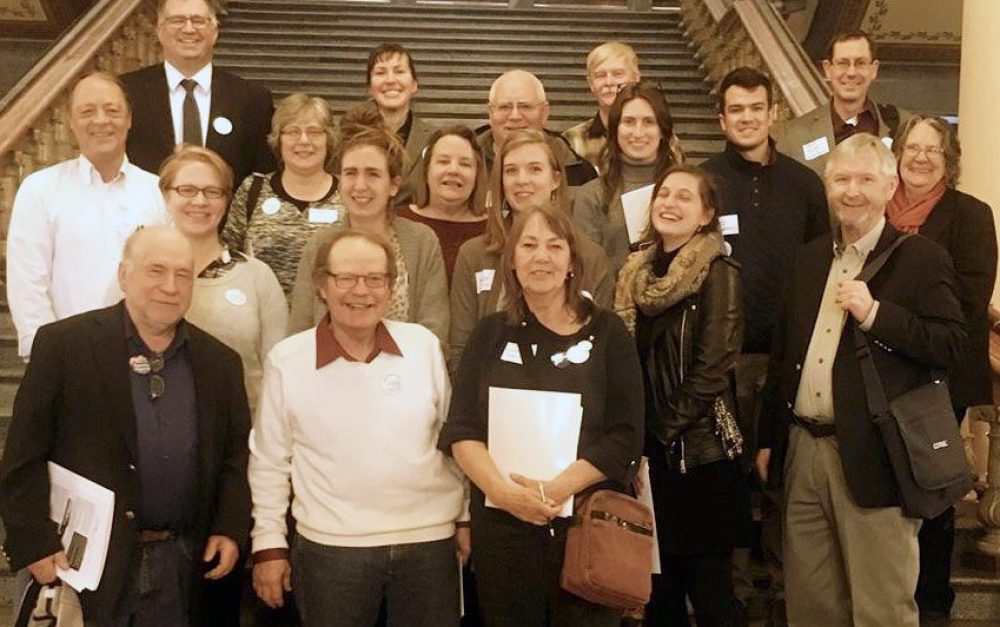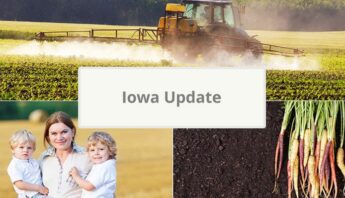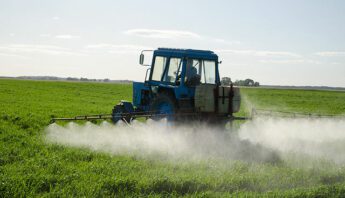In early February, a mighty group of Iowa farmers congregated at the Iowa state capitol to participate in the Iowa Farmers Union (IFU) annual Food and Farm Lobby Day. A carload of my farmer friends and I were thrilled to have the chance to speak with our legislators about the obstacles that beginning farmers so often face in our current system of agriculture.
Every year, the membership of IFU designates a few priority areas to focus on with the legislature. Our chosen topics this year were: restoring water quality, promoting family livestock farms, growing local food systems and protecting farms from pesticide drift.
Progress on drift, but a long way to go
As an organizer with PAN, I’ve been collaborating closely with IFU and several other Iowa farm organizations on pesticide drift, and this lobby day was an opportunity to update and educate our legislators about our work.
I was able, for example, to update legislators on the impact of last year’s bill to improve turnaround time on testing samples from drift incidents. Though the bill supported by our coalition didn’t pass, it prompted Iowa Department of Agriculture and Land Stewardship (IDALS) to make improvements on their own.
Previously, it was taking the agency an average six to eight months to get back to farmers with results after taking samples following a suspected drift incident. IDALS is now reporting that on average, they are getting results back to farmers 30 days after sampling.
This improvement in turnaround time will really help farmers who have been impacted by drift — but there are still several additional improvements that could be made. That’s what we focused on at this year’s lobby day. One commonsense change would be to make it much easier for farmers to report drift incidents by adopting an online reporting system.
At present, farmers must call the IDALS pesticide bureau during business hours to give verbal testimony when their farm is drifted on. Online reporting would facilitate easier and more accurate reporting. We’d also like to see IDALS maintain electronic records of pesticide incidents, replacing the outdated paper filing system currently employed and improving access to public records. Finally, we want to see an increase to the maximum $500 fine for drift violations, to reflect inflation in the decades since the Iowa Pesticide Act was first passed.
What’s next?
Many of the legislators I spoke with were receptive to hearing these suggestions, though most of them expressed that pesticide drift is a difficult challenge to take on in Iowa, given the amount of commodity crops grown here. They also articulated the general challenge of addressing these issues right now, with all the other very public debates underway in the state capitol.
Some of the lawmakers — commodity farmers themselves — shared personal accounts of understanding that drift onto neighboring farms can be a problem, but not knowing how to reduce pesticides drifting from their own fields.
Although there were few specific bills for us to discuss with our legislators this year, lobby day still felt successful due to the breadth of topics we were able to bring up and the willingness of our legislators to engage in discussion. In the long term, we need to be cultivating leaders on our issues at the state level if we’re going to see agricultural policy that helps farmers be both profitable, and good and responsible stewards of the land and water.







